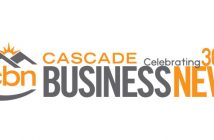
Many businesses have an ongoing dialogue on how to contribute, in a meaningful way, to the community that has supported their success. Business acumen tells business leaders that they want to make a difference, but they still want to make money while doing it. For instance, a company will donate a portion of the proceeds to a worthy charity. They encourage customers to buy their product knowing that some (not all), but some of the profit will go to charity.
Take TOMS, the successful shoe company that donates a pair of shoes to a child in need for every pair sold. They’re helping millions of kids and raking in millions.
So how can companies and those looking to make a difference ensure their investments pay off? Rachel Bellow and Suzanne Muchin, founders of ROI Ventures, have spent their careers working with companies, foundations, and entrepreneurs on business models that spur social change. ROI, which stands for Return on Inspiration, is a strategy firm that works at the intersection of social impact and market opportunity. (www.roinspiration.com)
Here is their “top 5” list of things dedicated business leaders should avoid in 2011 if they want to make a difference and keep making money:
1. orgs are out! – Companies start separate entities rather than using their already established and successful infrastructure, networks, and intellectual capital to spur social change.
2. Don’t hit and run – Companies make big donations and then walk away, something they would never do when making investments in the business world. Success requires investing intellectual capital, not just money.
3. “Doing good” does not stand alone as a marketing tool – the most successful companies incorporate doing good into their business model; it is not an afterthought, nor is it simply a way to market existing products and services. Companies like TOMS are successful because the shoes look AND do good.
4. Think beyond checkbook philanthropy – writing a check feels nice, but if you want to make a difference, you have to bring more to the table
than money.
5. Don’t hoard what you know – think ahead about how you’re going to transfer what you know (and what you learn) to the world as a result of your social impact work. The return on your social impact investment is amplified exponentially when you communicate what you’ve figured out in a way that others can understand.
If you’re like us we’re always looking for new ways to do things, trying to push the envelope a little to be sure we’re on top of our industry. As you make your 2011 marketing plans remember to include ‘making a difference’ in your business concepts. Include strategies, products and economic concepts that influence new customers and provide an avenue for you to contribute to your community. PHA




